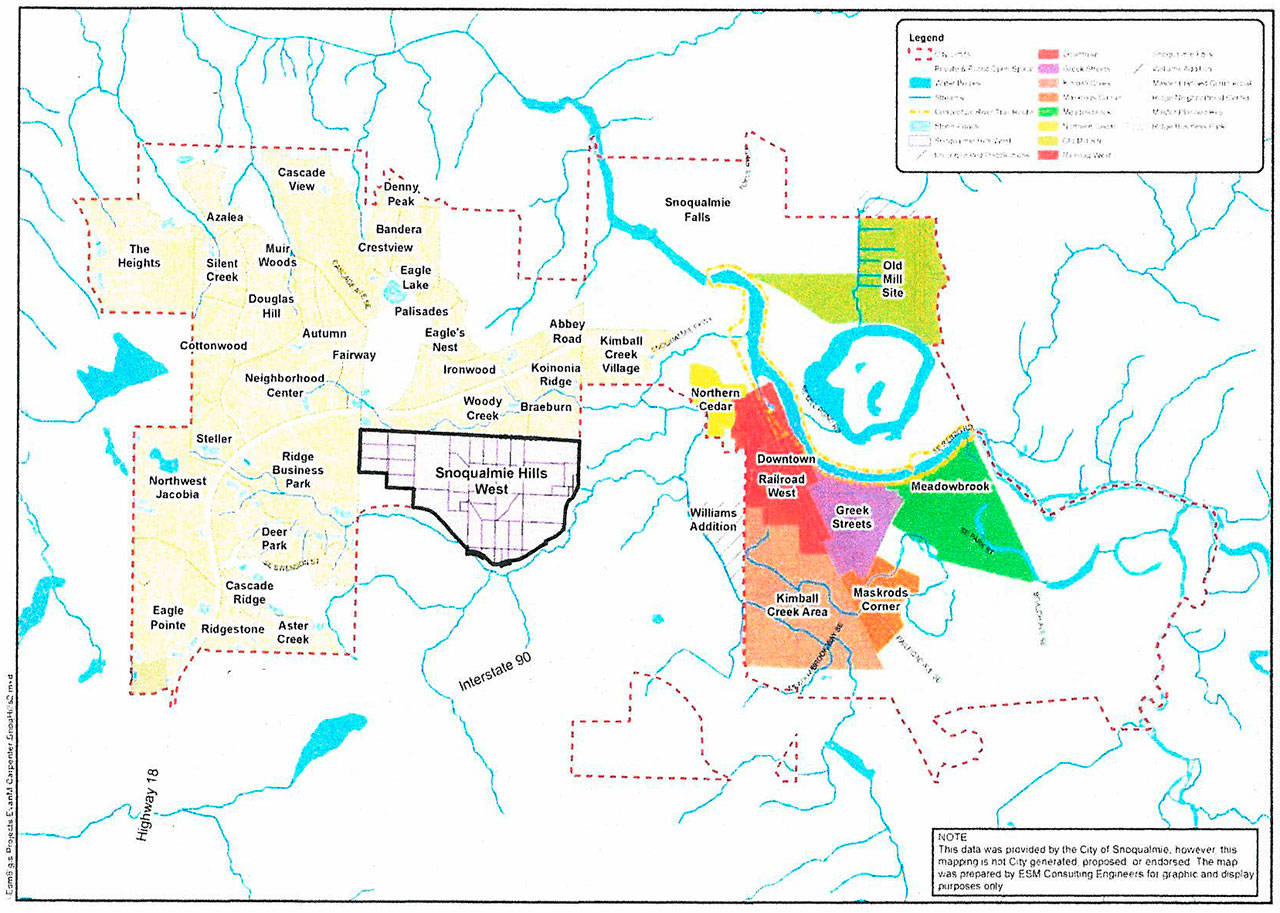The Snoqualmie City Council voted unanimously Aug. 21 against a developer’s letter of intent to petition for a proposed annexation of Snoqualmie Hills West. The land proposed for annexation was being considered as the location for development of an 800-unit 55-and-older senior living community.
In response to the developer’s request, the city created a website with detailed information about the proposal, held three public meetings and offered several opportunities for public comment on the issue, before voting against it at the Aug. 14 Snoqualmie City Council meeting.
Before last week’s vote, Mayor Matt Larson and the administration raised several concerns about moving toward a potential annexation. Concerns include uncertainty of water and sewer capacity, multiple development projects already underway that require significant staff resources, and the community’s need for time to absorb current development projects.
A recent survey conducted by the city from May 24 to July 10 was frequently cited at the meeting as a way to gauge public opinion on the state of the city on a much larger scale than the limited number of people who attend city council meetings. In the survey, 68 percent of respondents said the speed of population growth was too fast. This survey also showed that 71 percent of respondents said the rate of job and retail growth was too slow.
“This process of gathering extensive public comment from those with differing opinions showed our community working at its best,” said Mayor Larson. “Snoqualmie has active and engaged residents and business owners who take the time to do their research and offer informed and thoughtful opinions.”
Councilmember Bob Jeans also expressed concern for the council and city staff to be able to take on another large, multi-year development project when they already have many other projects taking their time and attention.
“We have so many things that we will be juggling over the next several years and we don’t know exactly when we are going to be addressing them because we don’t know when these people will be coming to us with more formal plans,” Jeans said. “The Salish expansion, the mill site, the retail Ridge development, the hotel, parcel S20 for affordable housing… these are things that will take up an extraordinary amount of time for the staff and for us as elected officials and I don’t know if we can add one more element that will take even more time.”
The council also expressed concern about the lack of focus on a commercial aspect to the proposed development. Moving the city away from residential development and bringing in more diverse commercial projects was outlined in the city’s comprehensive plan but was not a large part of the proposed project. Councilmember Sean Sundwall criticized the developers for being “tone deaf” to this issue and echoed Jeans’ point about the project being an enormous amount of work that would strain city resources.
“The tone deafness that I can talk about in detail… is the lack of discussion around commercial. Commercial is a called out in our comprehensive plan and it’s hardly even a footnote in this plan,” Sundwall said. “Those opposed to this development have articulated they are in favor of … greater commercial, whether that involves an assisted living facility… but this is a paltry addition to the current business commercial environment that we have and that is a critical part of our economic development.”
Considering the possibility of a future annexation request, city administration also itemized concerns about zoning, traffic impacts on Snoqualmie Parkway, unknown impact on adjacent land owned by the Snoqualmie Tribe and private landowners, the undefined number of residential properties within the annexation area, housing affordability within the development, and under-development of commercial offerings to support the need for a jobs to housing balance, among others.


